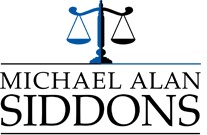A chapter 13 bankruptcy is also referred to us as a wage earner’s plan. It’s a type of debt relief that allows people to have a repayment plan for part or all of their debts.
A chapter 13 bankruptcy court allows debtors to recommend a practical debt repayment plan for three to five years. Also, bankruptcy law only allows individuals with regular income to file for this petition when they go bankrupt or fail to pay debts due to financial hardship. What happens after filing a bankruptcy case? Here’s what you need to know about it.
What to Expect After Filing for a Chapter 13 Bankruptcy Case
Notice of Bankruptcy Case Filing
The court will issue a Notice of Bankruptcy Case Filing after your PA bankruptcy lawyers file a petition. This is an important document that showcases the filing date of your petition, district information, case number, and your trustee’s information.
A Bankruptcy Trustee Will Be Assigned to Your Case
After filing a bankruptcy petition, your case will be assigned to a trustee. The bankruptcy trustee will follow the Chapter 13 case to oversee the debt repayments. Also, your bankruptcy filing will be administered by your trustee.
You, Will, Attend A “Meeting Of Creditors”
The first action by your bankruptcy trustee will be to call a “meeting of creditors.” Also called a “341 creditor’s” meeting, its purpose is for the trustee to ask you about your debts and assets under oath. The meeting will be between you and the trustee in most cases. However, there are scenarios where creditors can also be present at the meeting and ask questions.
You will need both the Social Security Card and your driver’s license at the meeting. The trustee will accept a 1099 or W2 if you do not present your original Social Security Card, but you can duplicate your Social Security card online to act as proof.
You Will Attend Financial Management Courses
Before the end of the bankruptcy, the court will require you to complete a Financial Management Course. Even though your Chapter 13 bankruptcy will end anywhere between 3 to 5 years, it is advisable to start this course as soon as possible to avoid delays. If the court does not have filed your course certificate by the end of your bankruptcy, you may not have your debt discharged.
Documents that are Required By The Trustee For Your Meeting Of Creditors
Each trustee may have different requirements before the 341 meetings. However, what you need to carry in this meeting, irrespective of your trustee, is the federal tax returns that were recently filed. Your law firm or bankruptcy attorneys should have these documents before the meeting.
If the Federal Tax Returns documents are not submitted at least seven days before the meeting, the trustee has the power to reschedule. Your bankruptcy lawyer should be able to let you know the required documents after the initial letter or email after a bankruptcy filing.
Keeping Up With Payments
In some cases, your bankruptcy payment plan may be used to pay for your car or mortgage. Bankruptcy laws require that you make your complete payment on the first of the month. If your trustee is paying the mortgage on your behalf, they must make full payment to the lender, and they’re not required to process less amount.
The car finance or Mortgage Company payments should be paid on time. The creditors are free to start the repossession or foreclosure process if you fall behind the monthly payments. It is wise to let your law office know if you miss making your payments.
How Does Bankruptcy Affect My Credit Score?
Debtors can report credit score increments after filing for bankruptcy. To understand this, most people who file for bankruptcy already have low credit scores. Two major reasons these people file for bankruptcy include maxing out their credit cards or missing payments. Also, these two factors weigh heavily in determining individual credit scores.
After the full bankruptcy process, including repayment, some of the debts will be discharged and improve your credit score. Generally, people who have filed for bankruptcy don’t tend to have any difficulties accessing debts in the future.
How Long After Bankruptcy Until I Can Get A Car Loan?
Even if your chapter 13 bankruptcy is active 4 to 6 months after filing it, you can still get a car loan from the same companies without a problem. A chapter 13 bankruptcy can stay on your credit report for up to 7 years.
There are a lot of myths surrounding bankruptcy. However, the truth is that you can easily get back on your feet and get another chance at getting credit quicker by filing for bankruptcy.
What Happens To Secured Debts?
A mortgage is an excellent example of secured debt. If you’re using a bank loan to finance the purchase of your property or a piece of real estate, you’re giving the bank foreclosure powers if you fail to comply with the terms of your mortgage. Chapter 13 bankruptcy allows you to keep and continue owning your property as long as you continue making payments as agreed in the Chapter 13 Repayment Plan.
How Long After Bankruptcy Until I Can Get A Mortgage
It can take about two to three years to get a mortgage, even with an active bankruptcy. You can easily get credit if you can afford to make monthly payments, which is a good reason you should consider income rather than a good credit score during certain financial strains.
Why We Are The Best Media, PA Bankruptcy Lawyers
Our law firm can help you file bankruptcy, prevent foreclosure, and clear your debts. We can offer you great advice on how you can improve your bankruptcy. Our attorneys are friendly, understanding, knowledgeable, and experienced in providing excellent bankruptcy services in Media, PA.
Contact us today at 610-255-7500 to start your bankruptcy process and start another journey of better financial freedom. Get a free consultation today!











